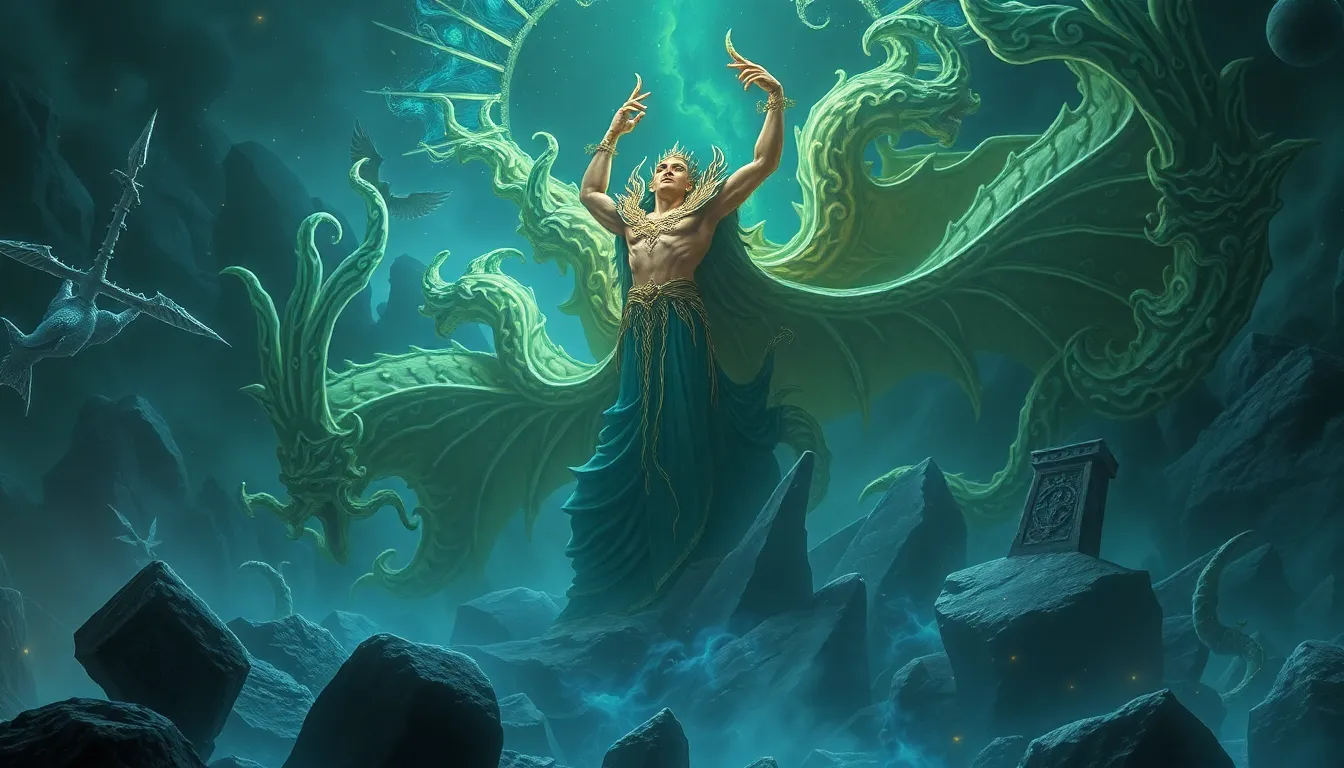Moral Myths and the Complexity of Choice: A Philosophical Exploration
1. Introduction to Moral Myths
Moral myths are foundational narratives or beliefs that shape our understanding of right and wrong, guiding ethical behavior and decision-making. These myths often arise from cultural, religious, or philosophical traditions and can be deeply ingrained in societal norms.
Historically, moral myths have evolved alongside human civilization, reflecting changing values, power structures, and philosophical insights. From ancient ethical codes to modern philosophical debates, the exploration of moral myths aids in comprehending the complexities of choice in our lives.
This article aims to delve into the nature of moral myths, examining their origins, implications, and how they influence moral choices in contemporary society.
2. The Nature of Moral Choices
Moral choices are decisions that involve considerations of right and wrong, often guided by ethical principles. Understanding moral choices requires a framework that includes:
- Definitions: Moral choices are those that have ethical implications, whereas non-moral choices do not.
- Intention vs. Consequence: The intentions behind a choice and the consequences that arise from it are both significant in moral decision-making.
Distinguishing between moral and non-moral choices is crucial; for instance, choosing what to eat for lunch may not have moral implications, whereas deciding whether to tell a truth that could cause harm does.
3. Common Moral Myths and Their Origins
Several prevalent moral myths exist in various cultures. Examples include:
- The Myth of Absolute Morality: The belief that certain actions are universally right or wrong, regardless of context.
- The Myth of Moral Progress: The assumption that humanity is always moving toward better moral understanding.
Cultural and societal influences play a crucial role in shaping these myths. For instance, historical contexts such as colonialism or the civil rights movement have generated specific moral narratives that persist today. Case studies like the abolition of slavery or women’s suffrage illustrate how moral myths can evolve or be challenged over time.
4. The Complexity of Moral Decision-Making
Moral decision-making is influenced by a multitude of factors, including:
- Emotions: Feelings often drive our moral judgments, sometimes overriding rational thought.
- Reasoning: Logical analysis of a situation can lead to different moral conclusions based on the framework used.
- Context: The circumstances surrounding a decision often affect moral outcomes.
The interplay between individual beliefs and societal norms further complicates moral choices. Cognitive biases, such as confirmation bias or the framing effect, can skew our moral judgments, leading to choices that may not align with our stated values.
5. Moral Relativism vs. Moral Absolutism
Moral relativism posits that moral judgments are not absolute but instead vary across cultures and contexts, while moral absolutism argues for universal moral principles. Key differences include:
- Relativism: Emphasizes the diversity of moral beliefs and the importance of context.
- Absolutism: Argues that some actions are categorically right or wrong, regardless of circumstances.
Philosophical arguments for relativism often highlight the importance of cultural sensitivity, while absolutism is supported by appeals to human rights and universal ethics. The implications of these views significantly impact moral choice and responsibility, often leading to conflicts in ethical discussions.
6. The Role of Ethics in Understanding Moral Myths
Major ethical theories provide frameworks for understanding moral myths:
- Utilitarianism: Focuses on the outcomes of actions, advocating for the greatest good for the greatest number.
- Deontology: Emphasizes duties and rules, asserting that certain actions are inherently right or wrong.
- Virtue Ethics: Centers on the character of the moral agent rather than specific actions.
These theories interact with moral myths by either reinforcing or challenging them, helping clarify moral choices and the underlying principles guiding those choices.
7. Moral Dilemmas and Their Impact on Choice
Moral dilemmas are situations where a person faces conflicting ethical obligations, making it difficult to determine the right course of action. Examples include:
- The Trolley Problem: A classic ethical scenario questioning the choice between saving several lives at the expense of one.
- Confidentiality vs. Harm: A therapist torn between maintaining a client’s confidentiality and preventing potential harm to others.
The significance of moral dilemmas lies in their ability to challenge existing moral myths, forcing individuals to confront complexities in ethical reasoning and the limitations of their moral frameworks.
8. The Psychological Perspective on Moral Choices
Psychology offers valuable insights into moral decision-making:
- Cognitive Development: Understanding how moral reasoning evolves from childhood to adulthood informs our grasp of moral choices.
- Social Psychology: Examines how group dynamics and societal influences shape individual moral beliefs.
These psychological factors highlight the intricate relationship between individual cognition and broader social contexts in shaping moral understanding.
9. The Future of Moral Myths in a Globalized World
Globalization has profound implications for moral beliefs and practices, leading to:
- Increased exposure to diverse moral perspectives, potentially challenging existing moral myths.
- Emerging technologies, such as artificial intelligence, raising new ethical questions and dilemmas.
- Social movements advocating for change, influencing the evolution of moral narratives.
The ethical implications of these shifts necessitate a reevaluation of traditional moral myths, encouraging a more nuanced understanding of morality in a rapidly changing world.
10. Conclusion: Navigating the Complexity of Choice
In exploring moral myths and the complexities of choice, we uncover key insights about the nature of morality and decision-making. Understanding the interplay of cultural narratives, psychological factors, and ethical theories is crucial in navigating moral dilemmas.
Critical thinking emerges as an essential tool for making informed moral choices, encouraging individuals to question established myths and consider the broader implications of their decisions.
As we move forward, embracing the complexity of moral choices will not only enhance personal ethical understanding but also contribute to a more compassionate and just society.




